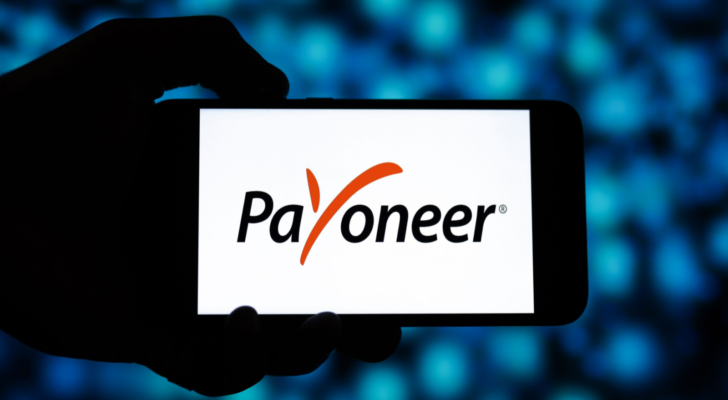3 Stocks to Buy That Are Not Named SOFI
A recent analyst report from Keefe, Bruyette & Woods analyst Michael Perito questioned whether the momentum SoFi Technologies (NASDAQ:SOFI) stock was experiencing was justified given its troubles. The reality is there are alternative stocks to SOFI.
Since Perito asserted that SoFi has “overshot the fundamental earnings outlook,” its shares have lost 21.5% of their value, trading at their lowest level since July.
As part of the analyst’s Aug. 1 note to clients, Perito downgraded its stock to Underperform from Market Perform on valuation concerns.
InvestorPlace - Stock Market News, Stock Advice & Trading Tips
SoFi is “generating 80% of revenues from bank-related activities, and while [its] growth rate and business model are differentiated, the current valuation is difficult to fundamentally justify,” he noted, flagging that the company’s shares were trading at more than 30 times the high end of the company’s target 2023 range for earnings before interest, taxes, depreciation and amortization,” MarketWatch reported its comments.
To figure out three stocks to buy besides SOFI, I’ll look for financial services businesses that trade for much less than 30x earnings before interest, taxes, depreciation and amortization (EBITDA) and aren’t up nearly 100% on the year like SOFI is.
Arthur J. Gallagher (AJG)

Source: Shutterstock
Arthur J. Gallagher (NYSE:AJG) is a Chicago-based insurance broker that got its start in 1927 when the company’s namesake opened an insurance agency in the Windy City.
Nearly 100 years later, Arthur’s grandson Patrick runs the company. He started as an intern in 1972, moving up the ranks until being appointed chief executive officer (CEO) in 1995. He’s run it ever since. When Pat Gallagher became CEO, the company had $368 million in revenue and $28.9 million in pretax earnings. In 2022, it had $1.33 billion in pretax profits on $8.55 billion in revenue.
The compound annual growth rate (CAGR) for pretax profits during Gallagher’s 28-year stint is 14.7%. Over the same period, AJG stock’s CAGR was 12.8%, 430 basis points higher than the S&P 500.
He’s a CEO you want to stay on for years. And he’s only 71. Warren Buffett still performs at a high level and turns 93 on Aug. 30.
From a valuation perspective, AJG stock is more expensive than ever, with an enterprise value of $54.0 billion, 22.7x EBITDA.
That said, Gallagher’s grown its operating income and revenue by an average of 19% and 13% annually over the past decade.
FirstCash Holdings (FCFS)

Source: Shutterstock
FirstCash Holdings (NASDAQ:FCFS) won’t be everyone’s cup of tea.
How so? It plays in a messy sandbox, operating 2,889 pawn shops in the U.S. and elsewhere under the Cash America and First Cash banners. Pawn shops make money in two ways: providing pawn loans where a person provides collateral in return for a small loan averaging $241, and buying items from customers and reselling them at a 35-40% margin.
As the August 2023 presentation points out, it uses top-notch data analytics and artificial intelligence (AI) to determine collateral value, loan-to-value ratios and retail pricing. That translates into higher profits.
While its U.S. business is big, its Latin American business, at least by store locations, is more significant, with 1,788 locations in four countries. In 2015, it had 737 stores generating nearly $200 million in revenue, an average of $265,943. Today, it’s generating about $253,000 per store (down from 2015) but on a much larger retail footprint.
In December 2021, the company diversified its revenues by acquiring American First Finance (AFF), one of the country’s leading providers of lease-to-own and point-of-sale payments, for $1.17 billion. AFF generates approximately 19% of First Cash’s net income.
Since 2007, it has had at least seven significant corrections. This is a stock to add to from time to time.
Payoneer Global (PAYO)

Source: photo_gonzo / Shutterstock.com
This last one, I’m not nearly as familiar with. Payoneer Global (NASDAQ:PAYO) helps small and medium-sized businesses transact and do business globally.
How does it make money? It primarily generates transaction fees which vary based on the type of service provided.
“Transaction fee revenue principally consists of revenue generated when customers use their funds, either to withdraw their funds from our platform or to use the funds to make payments,” states pg. 44 of its 2022 10-K.
“Some services, such as virtual commercial cards, typically generate higher transaction fees from a dollar of volume than if that same dollar was withdrawn to a customer’s bank account.”
So, take Q2 2023, for example. It generated $206.7 million in revenue in the quarter, 40% higher than Q2 2022 and 7.7% higher than Q1 2023. It pays its banking partners fees to process payments to and from its platform. Those costs represented 13.8% of its revenue in the second quarter, down 390 basis points from a year earlier.
How does it generate profits? Increasing the Ideal Customer Profiles (ICPs) that it has — 495,000 at the end of June — and the volume they move to and from its platform. Its take rate in the second quarter was 1.31% of its $15.8 billion in volume, 8% higher than a year ago.
If those two numbers keep increasing, the profits will care for themselves. In 2023, it expects to generate an adjusted EBITDA of $165 million at the midpoint of its guidance from $825 million in revenue.
It’s an excellent value-play down over 40% over the past three years.
On the date of publication, Will Ashworth did not hold (either directly or indirectly) any positions in the securities mentioned in this article. The opinions expressed in this article are those of the writer, subject to the InvestorPlace.com Publishing Guidelines.
Will Ashworth has written about investments full-time since 2008. Publications where he’s appeared include InvestorPlace, The Motley Fool Canada, Investopedia, Kiplinger, and several others in both the U.S. and Canada. He particularly enjoys creating model portfolios that stand the test of time. He lives in Halifax, Nova Scotia.
More From InvestorPlace
ChatGPT IPO Could Shock the World, Make This Move Before the Announcement
Musk’s “Project Omega” May Be Set to Mint New Millionaires. Here’s How to Get In.
The Rich Use This Income Secret (NOT Dividends) Far More Than Regular Investors
The post 3 Stocks to Buy That Are Not Named SOFI appeared first on InvestorPlace.
